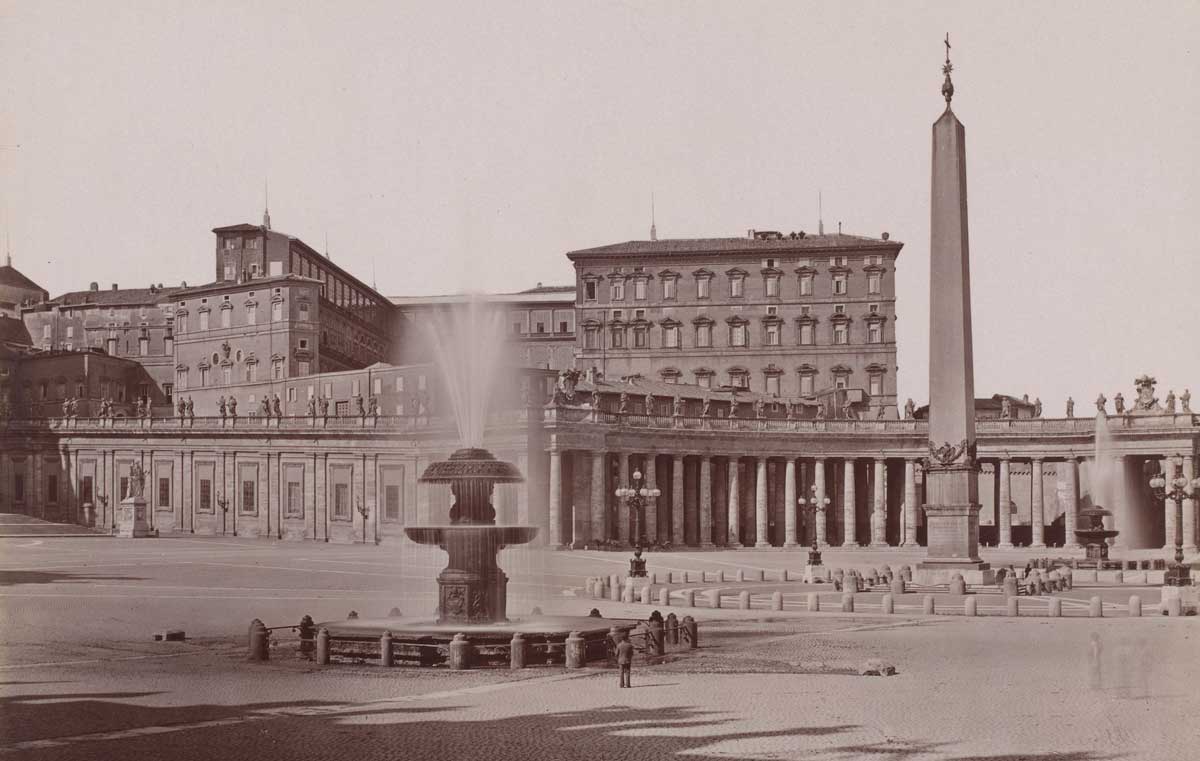History Wars | History Today - 5 minutes read

History is always politics. For governments, as well as social and religious institutions, control of narratives about the past is a vital source of authority and legitimation in the present. In the age of the Reformation this became more evident than during any previous era. The Protestant movement of the 16th century provided both a repudiation and a reinterpretation of the Church’s history: the ecclesiastical story of the preceding millennium was one of corruption, degeneration and apostasy. Much Protestant historiography adopted a distinctly ‘apocalyptical’ mode of operation, viewing past doctrinal and political conflicts as proxy battles between the forces of Christ and Antichrist and calibrating countdowns to the end of the world. A multi-volume work produced between 1559 and 1574 by a team of Lutheran scholars, the so-called Magdeburg Centuries, portrayed the 1,300 years after the death of Christ as a dramatic struggle for the survival of true doctrine, in the process accidentally popularising the notion that 100-year blocks were a sensible means of organising the study of the past.
The Catholic response to the onslaught of the reformers has always seemed rather less exciting. The remit, after all, was to defend the status quo and assert the value of tradition and continuity. The epitome of Counter-Reformation historiography (and a direct rebuttal of the Magdeburg Centuries) was to be found in the highly influential Ecclesiastical Annals of Cardinal Cesare Baronio, appearing in 12 volumes between 1588 and 1607. Baronio’s intention was to demonstrate that nothing had really changed in the course of Catholic history: contrary to the slurs of the reformers, the doctrines and institutions of the Church, from the time of the apostles onwards, remained essentially the same.
Baronio’s fame and legacy has helped to eclipse the work of other historians in 16th-century Rome, particularly that of his slightly older contemporary Onofrio Panvinio (1530-68). Panvinio is scarcely a household name, perhaps not even in the households of scholars of the Catholic Reformation. Yet, as Stefan Bauer argues in this illuminating book, part biography and part study of the writings, his achievement deserves to be better known.
Panvinio was a friar of the Eremetical Augustinians, the same order to which Luther had belonged. He shared with the German reformer an early career as a talent-spotted high-flyer, as well as an indefatigable energy for writing. Along with his principal patron, Cardinal Alessandro Farnese, a grandson of Paul III, Panvinio had to lie low during the pontificate of the fanatical Paul IV (1555-9). But he returned to favour under the (relatively) liberalised regime of Pius IV, who gave him a letter of access to all Catholic libraries and archives. Panvinio’s numerous published and manuscript works included histories of noble families, surveys of ancient Rome and several variants on his particular specialism, the history of the papacy. A source-critical scholar in a way that modern historians can recognise, Panvinio was not above doctoring the record when circumstances demanded. Having decided that the father of Pope Innocent VIII (1484-92) was a humble medical doctor, Panvinio tactfully upgraded his status to that of knight, after the pontiff’s descendants in the Cibo family complained and threatened him with violent retribution.
Panvinio’s most significant scholarly achievement, and the focus of much of Bauer’s close analysis, was his 1559 history of papal elections, De varia creatione Romani pontificis, the first study to tackle this fascinating and politically sensitive subject. Remarkable in Panvinio’s treatment was his willingness to recognise change and diversity in the ways popes had been elected. He identified 18 distinct methods prior to the 16th century, rather more (as Bauer observes) than the evidence really called for. Nonetheless, Panvinio had the outlines of the story correct, from election by the clergy and laity of Rome in the first Christian centuries, through the decisive voice of Holy Roman Emperors in the early Middle Ages, to the stabilisation of an electorate of cardinals, which in the 12th century was required to display a two-thirds majority and which in the 13th century was organised into the conclave whose workings remain both familiar and mysterious.
Panvinio was quite prepared to recognise the personal failings and political ambitions of individual popes. Yet he was careful not to be seen to undermine the authority of the institution itself. Nonetheless, in the decades after his death, as the Indian summer of Renaissance Rome gave way to the chilly climate of the Counter-Reformation, Panvinio’s gradations were less welcome than the clarities of Baronio. Censors, invariably theologians rather than historians, were appointed to peruse the works. There were things in the writings of this ‘little friar’, suggested the Spanish canon lawyer Francisco Peña, ‘jumbled, many confused, some useless and several dangerous’. It likely did not help that some Protestants were professed admirers: the Huguenot scholar Joseph Scaliger considered Panvinio to be pater historiae, the father of history.
This thoughtful and judicious monograph is to be welcomed for the considerable light it sheds on confessionalisation of historiography and the cultural politics of papal Rome. Its wider interest is as a contribution to the study of how an authoritative (and not infrequently authoritarian) Church has tried to deal with the indisputable evidence of division and discord in its own past. Panvinio’s voice, muted but not silenced, was an attempt to square that circle, three centuries before Cardinal (now Saint) John Henry Newman sought to persuade Catholics that ‘in a higher world it is otherwise, but here below to live is to change, and to be perfect is to have changed often’.
The Invention of Papal History: Onofrio Panvinio between Renaissance and Catholic Reform
Stefan Bauer
Oxford 262pp £70
Peter Marshall is Professor of History at the University of Warwick.
Source: History Today Feed